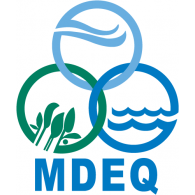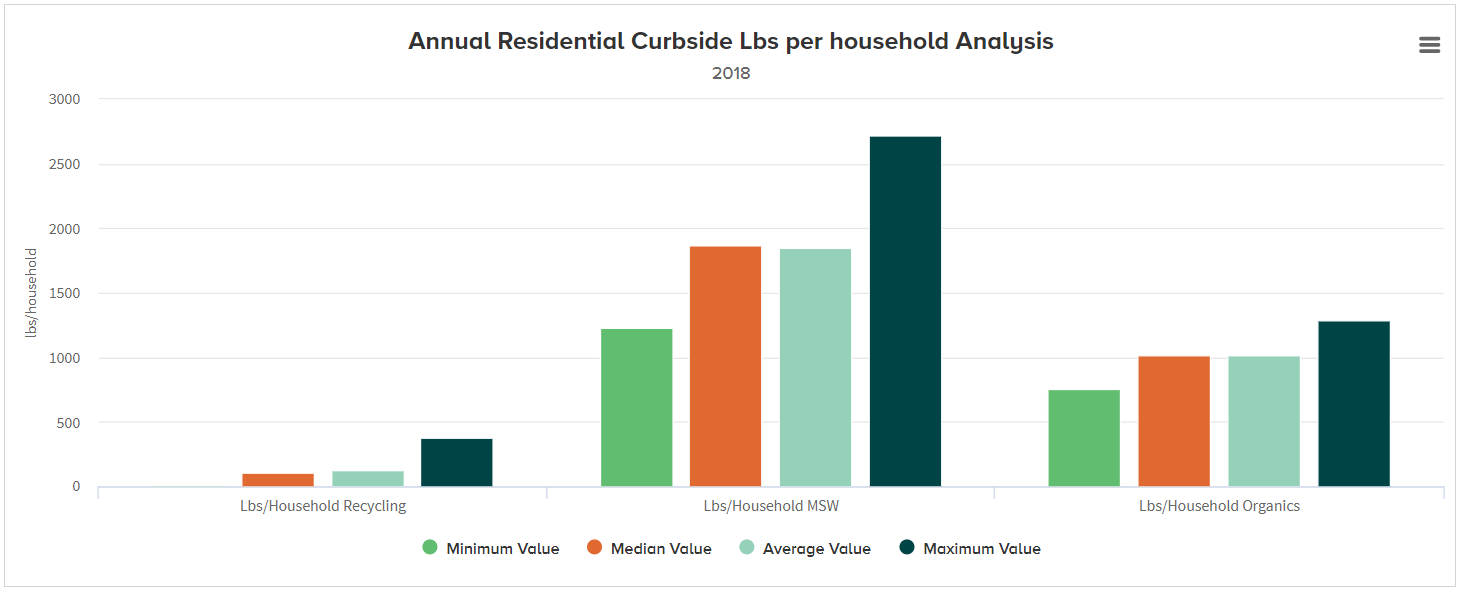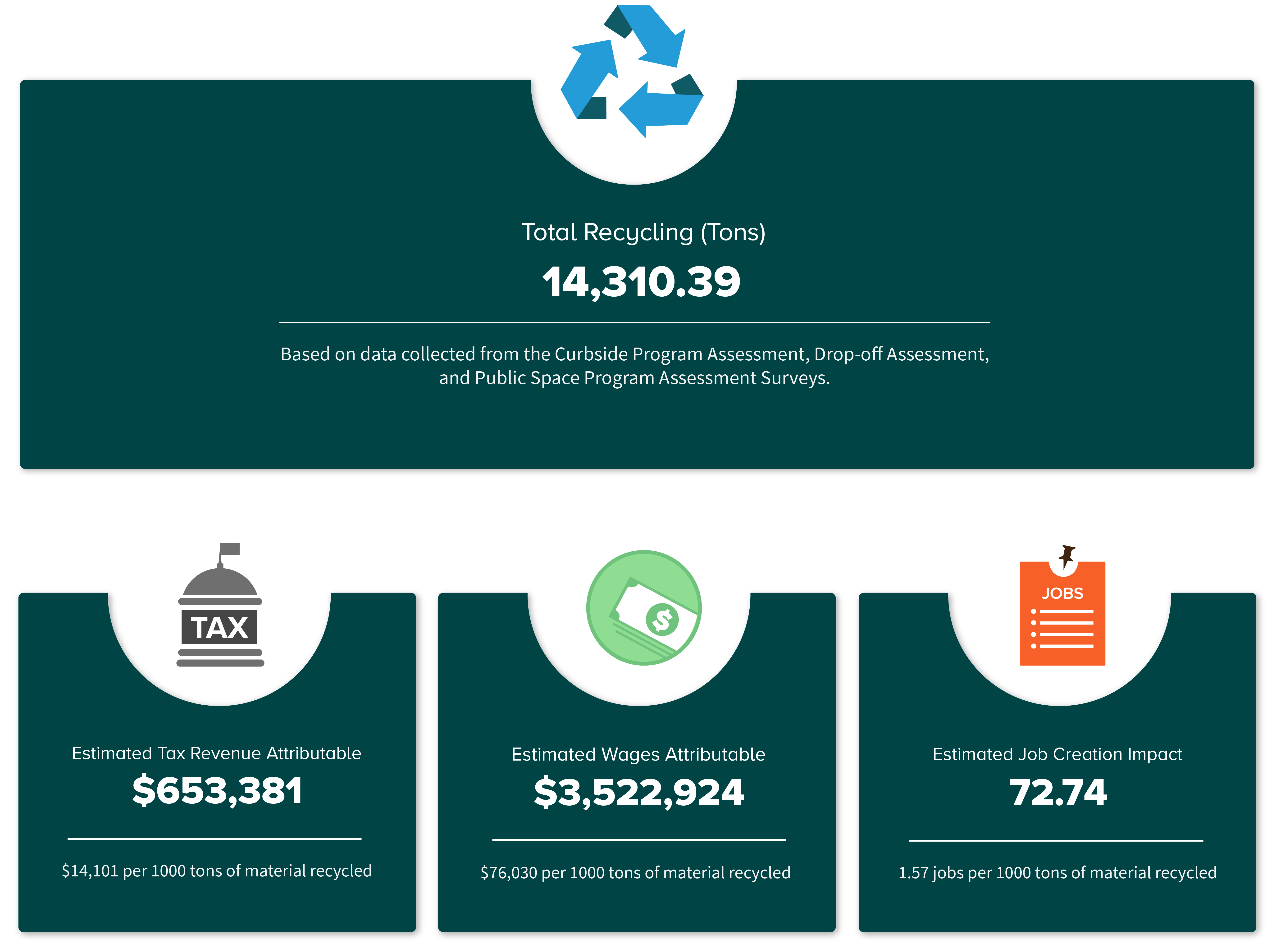MDEQ chooses the MMP™ to measure municipal program performance across Mississippi.

Overview
The Mississippi Department of Environmental Quality (MDEQ) is responsible for protecting the state's air, land, and water. Its mission is to safeguard the health, safety, and welfare of present and future generations of Mississippians by conserving and improving the environment and fostering wise economic growth through focused research and responsible regulation.
The Challenge
MDEQ's primary challenge was its lack of visibility into local recycling efforts. Historically, the state had only collected disposal data to measure its progress towards the statewide waste reduction goal. Municipal recycling data was not being collected so there was no way to measure which communities had strong recycling programs and which ones needed more support. MDEQ offers grants to communities seeking to implement new recovery programs so having access to municipal recycling data is key to knowing which communities need the most help.
It was clear that MDEQ needed this municipal program data but it wasn't ready to invest in a custom data collection program due to budget & staffing limitations. After all, designing a municipal data collection program often takes months. Key data points must be identified, survey questions need to be crafted and organized, and analytical reports need to be prepared.
The Solution
MDEQ was already using Re-TRAC Connect™ to collect solid waste information from facilities in the state so when they heard about the MMP, it was perfect timing because they were looking for a solution to measure municipal recycling. In January of 2019, MDEQ decided to leverage the power of the MMP by subscribing to the Government Data Management Plan (GDMP). MDEQ's State Recycling Coordinator, Jennifer Milner, lost no time in reaching out to the communities in her jurisdiction to highlight the benefits of participating in the MMP and encouraged them to join the program. By May of 2019, she already had dozens of communities join the program.
As communities complete their program assessment surveys, Jennifer performs an initial review of the data submitted. She communicates directly with the communities in her jurisdiction to confirm data accuracy and discuss any unexpected responses. Once her review is complete, the surveys are flagged for The Recycling Partnership to perform the final data verification.
The GDMP provides Jennifer the tools she needs to monitor participation, review program assessment surveys for all municipalities in her state, and generate reports to measure statewide municipal program performance. She can use MMP data to discover what municipalities in Mississippi consider as their greatest waste management challenges, calculate the average pounds of curbside recycling collected per household, and translate the state's waste diversion efforts into economic benefits like estimated jobs created.

MDEQ uses the Municipal Measurement Program (MMP) to collect data about municipal programs in the state. Participation is voluntary so the results (as shown in analytical reports) do not represent all municipal recycling programs in the state. In 2018, twenty-four Mississippi communities participated in the MMP.
The Results

The GDMP is a great solution for state agencies that want to get started quickly with local government reporting but don't have the time or budget to design a brand new program."

By choosing the GDMP as their local government reporting solution, MDEQ didn't have to spend time figuring out what questions to ask its municipalities or how to measure the performance of municipal waste & recycling programs in Mississippi. The MMP was ready-to-go so municipalities could join and immediately get started without much help from MDEQ.
Jennifer was pleased to see that the MMP's program assessment surveys already capture the data MDEQ needs to measure municipal program performance in Mississippi. The data helps the state reliably measure its progress towards achieving statewide waste reduction targets and provides unprecedented visibility into local diversion efforts. It also gives Jennifer the insights she needs to discover which programs are already performing well. Interestingly, the GDMP also makes it much easier for her to identify areas of the state where local governments with underperforming waste diversion performance might be in a position to partner with high-performing municipalities, material recovery facilities, and end users of recycled materials to improve their performance and open up new opportunities for cooperation to address recycling collection and transportation challenges.
Now entering their second reporting year, MDEQ can monitor the effect that municipal program changes (e.g. new program added, programs terminations, etc.) have on its overall performance.
Economic Benefits of Recycling

MDEQ uses the Municipal Measurement Program (MMP) to collect data about municipal programs in the state. Participation is voluntary so the results (as shown in analytical reports) do not represent all municipal recycling programs in the state. In 2018, twenty-four Mississippi communities participated in the MMP.
Government Data Management Plan (GDMP)
The GDMP is the most efficient way to measure municipal program performance across your jurisdiction. It provides unprecedented visibility into municipal program performance in the region. It requires less budget than designing a program from scratch and requires fewer staff members thanks to Re-TRAC Connect's task automation and analytical reports.